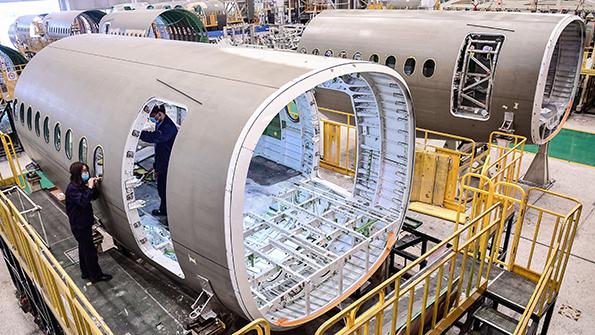
Ask the Editors: The Aviation Week Network invites our readers to submit questions to our editors and analysts. We’ll answer them, and if we can’t we’ll reach out to our wide network of experts for advice.
Do you believe the economic slowdown could result in Airbus pulling work back into Europe from other regions of the world?
Jens Flottau, Aviation Week’s Executive Editor, Commercial Aviation, answers:
Airbus made the strategic decision to broaden its geographical base of mainly final assembly lines in the early 2000s. The final assembly line in Tianjin, China, opened in 2008, followed by a similar site in Mobile, Alabama, in 2015. The reason for the moves was largely political: The company’s senior management believed that having a prominent industrial footprint in China would promote sales in one of the fastest growing and biggest air transport markets. Sales figures appear to prove that the assumption was accurate.
The same is true for Mobile. Like Tianjin, the site is not necessarily more cost effective than Hamburg, Germany, or Toulouse, France, mainly because the logistics are more complicated in terms of shipping parts across the world. But it was seen as a means to increase Airbus’ market share with U.S. airlines. The carriers could argue that they are “buying American” even though the aircraft they are ordering are made by Airbus. Mobile also plays a key role to get around U.S. imposed tariffs for aircraft imports and now also produces the A220.
Consolidating production in fewer places generally makes sense, particularly in a dramatic downturn such as the current one. Were it not for the strategic rationale, some of the sites would surely be at risk, particularly the low-volume split A220 line, which ironically is currently a bigger issue for the main site in Mirabel, Canada. But no indications suggest that the current Airbus management under CEO Guillaume Faury is coming to different conclusions than its predecessors. If anything, the expectation is for market growth to shift further to Asia-Pacific in the aftermath of the COVID-19 pandemic, therefore underlining the need for an industrial presence in the region.
The bigger unknown is not the economic slowdown but worsening trade and political relations with China, which could ultimately change the picture, at least for Airbus’ footprint in that country.





